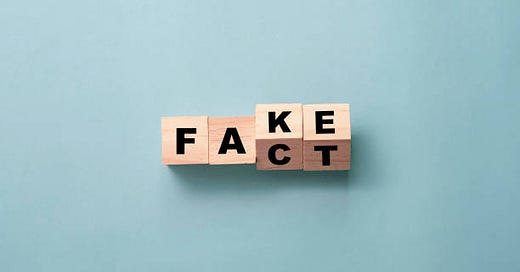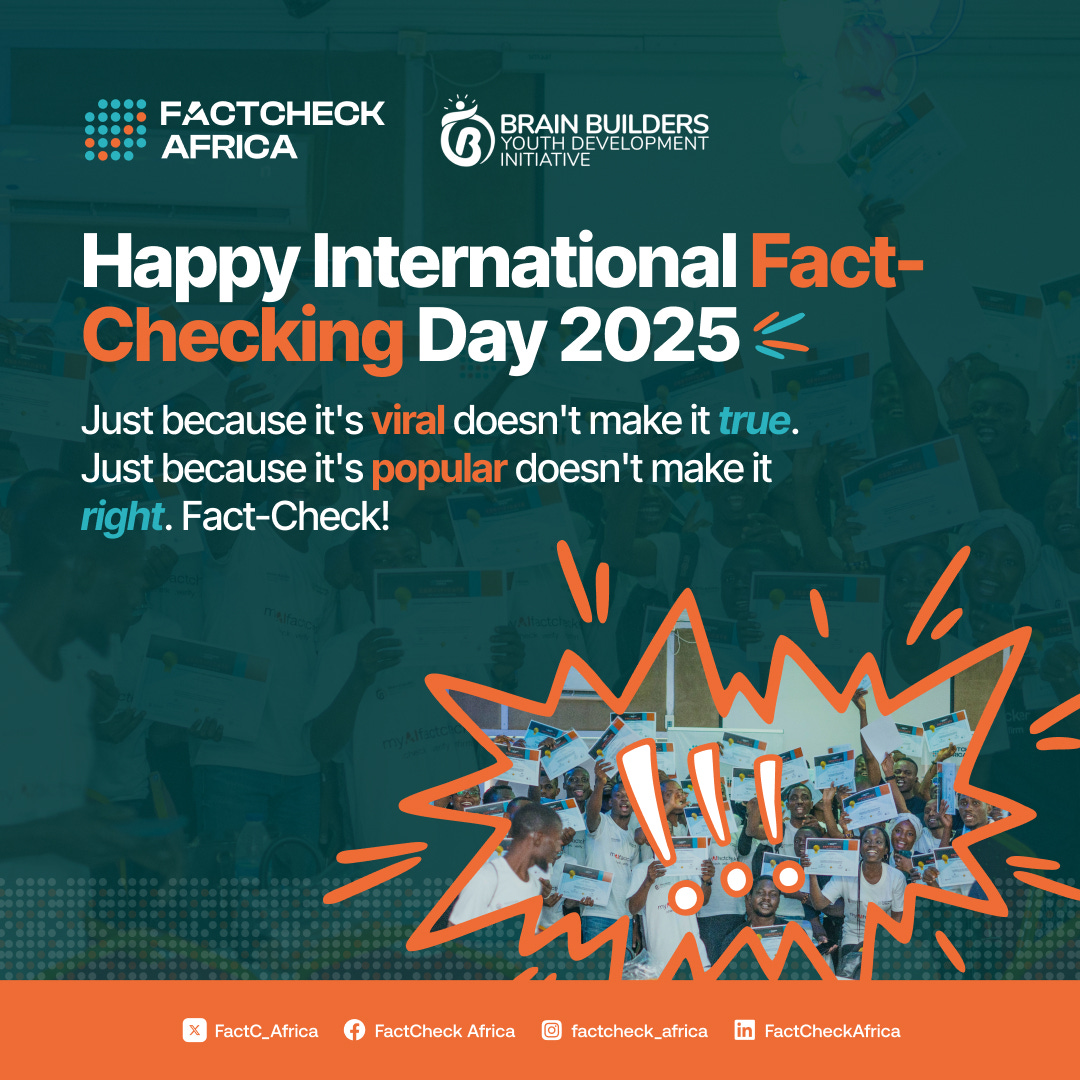The Truth is Never in a Hurry
Misinformation in the wrong hands is like placing nuclear weapons in the grip of the reckless. And in this fight for truth, speed is an illusion. The real goal is precision.
I remember the first time I stumbled upon journalism.
It wasn’t a grand calling or a childhood dream—I just wanted to write better. It was 2018, and I was a second-year student at the University of Ilorin. On a random Friday after Jumu’ah, I noticed a poster pinned to the faculty notice board. It was from the Union of Campus Journalists (UCJ, Unilorin), calling for new members interested in sharpening their writing and speaking skills.
I reached out to the contact on the poster, Mubarak, whose poetic writing style would later shape mine in ways I didn’t realize at the time. I filled out the form, completed the assessment, and went for the interview.
There was one question I still remember vividly: "What unique skill do you possess?" I told them, "Questioning skills." They almost laughed, but they held back and helped me refine what I actually meant: probing. Critical thinking and curiosity—two skills that would unknowingly prepare me for something bigger than campus journalism.
It wasn’t long before I was inducted into the union, with Kabir Adejumo giving the keynote. That was my first step into journalism, but I didn’t know it yet.
2019 came, and I found myself volunteering for Premium Times’ #WeekForTruth—a campaign to expand fact-checking across Nigeria. It was the first time I saw misinformation framed as a crisis, not just an occasional nuisance.
2020 was the year everything changed. The pandemic hit, the world shut down, and like many others, I was stuck at home with unfinished coursework, an unwritten final-year project, and nothing but time.
That was when I came across an open call for volunteers at KnowCovid19, a project designed to counter misinformation in rural communities. I applied, thinking it was something to keep me busy.
I didn’t get in, despite my relationship with one of the conveners.
At the time, I didn’t fully understand what misinformation and disinformation really were. I just knew they existed. But preparing for that application forced me to research, and that research changed something in me. For the first time, I saw how a single piece of false information could be as dangerous as a virus.
Later, in 2021, when Brain Builders Youth Development Initiative put out a call for fact-checking trainees, I didn’t hesitate. I joined the Fact-Check Elections team to monitor the 2023 elections before we rebranded into FactCheckAfrica—broadening our scope beyond politics.
Since then, I’ve fact-checked hundreds of claims, written countless explainers, and led multiple Media & Information Literacy trainings (here’s some of my work). But more than anything, I’ve come to realise this:
The truth is never in a hurry.
Falsehood moves faster. It travels with outrage, thrives on virality, and preys on ignorance.
I’ve seen lies masked as facts, half-truths packaged as full truths, and disinformation dressed in the clothes of authority. And yet, there’s something about the truth—it doesn’t force itself, but it endures.
The days when journalism was the sole guardian of truth are long gone. Now, anyone with a smartphone is a publisher. Information no longer moves at the speed of light; it moves faster.
A single tweet can incite violence. A doctored video can ruin reputations. A well-crafted lie can rewrite history. And that is why fact-checking exists—not just as a profession but as a responsibility.
Today is International Fact-Checking Day, and if there’s anything I’ve learnt, it’s that the work of verifying truth is not just for journalists. It’s for everyone.
For every one false claim fact-checked, a thousand more are being shared. But we do it anyway—because if we don’t, who will? There is too much at stake.
Misinformation in the wrong hands is like placing nuclear weapons in the grip of the reckless. And in this fight for truth, speed is an illusion. The real goal is precision.
The truth doesn’t need to rush. It just needs to be found.
This is why I do what I do. Because when truth is distorted, trust is broken, and without trust, everything falls apart. I hope reading about my fact-checking experience will reaffirm your commitment to truth and the pursuit of it.
Happy International Fact-Checking Day!
In pursuit of truth,
Mustapha Lawal



